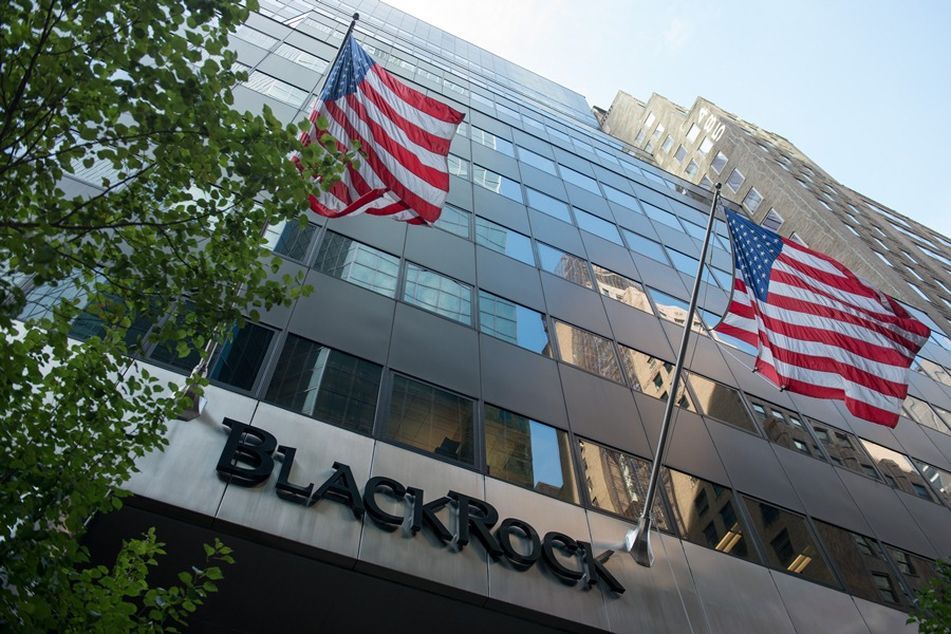BlackRock’s proxy move shows limit of dumping bad stocks

The fund manager announced that starting next year, some of its institutional clients will be able to play a bigger role in shareholder votes.
A BlackRock Inc. decision to give some of its biggest clients more power to vote at shareholder meetings just added a new twist to the raging debate at the heart of ESG investing.
The world’s largest asset manager revealed Thursday that starting next year, some institutional clients will be able to play a bigger role in shareholder votes. The move will apply to about 40% of $4.8 trillion in index equity assets that BlackRock manages.
The decision to give index investors more influence comes as the firm predicts a “vast reallocation” of capital into environmental, social and governance strategies. But amid the boom, there remain big questions over what constitutes an effective ESG approach.
The core of the dilemma: Is it better to punish companies that fall short by selling out, or to stay vested and try to bring about improvements through active ownership?
Perhaps because it’s easier, a lot of Wall Street ESG strategies have evolved around the former approach. BlackRock itself is the biggest issuer of ESG exchange-traded funds, which are marketed to investors as a way to steer cash toward good companies and away from bad ones.
Yet some of the most eye-catching corporate changes have been brought about by active investors, such as Engine No. 1’s victory in a fight to get board seats at ExxonMobil Corp., one of the world’s biggest emitters of carbon dioxide.
TRACKING COSTS
Recent research helps explain why the latter strategy is winning new believers.
Even as billions of dollars diverts toward firms scoring higher on ESG measures, the funding costs for bad actors have hardly budged, according to the study. It suggests that portfolio allocation ultimately does little to correct unethical behavior in the corporate world.
“A substantial increase in the amount of socially conscious capital is required for the strategy to affect corporate policy,” authors Jonathan Berk and Jules Van Binsbergen wrote in the August paper. “Given the current levels of socially conscious capital, a more effective strategy to put that capital to use is to follow a policy of engagement.”
Berk and Van Binsbergen — from the Stanford Graduate School of Business and the Wharton School, respectively — started with the assumption that effective divesting should result in higher costs of capital for the company that’s been sold.
By tracking the amount of “socially conscious capital,” the targeted companies and those firms’ correlation to the rest of the market, the pair found the impact on the cost of capital was “too small to meaningfully affect real investment decisions.”
POLLUTERS SURGE
Anecdotal evidence certainly suggests that less ESG-friendly companies are going unpunished by the market.
This year some of the biggest emitters of carbon dioxide in the world have enjoyed sizable share-price gains, including Exxon, Chevron Corp. and ConocoPhillips. Glencore, which has been blacklisted by the Norwegian Sovereign Wealth Fund since May 2020 because of its exposure to coal, is up more than 50%.
As BlackRock plots how to make participation easier for more of its clients, the trend looks set to pick up.
The Securities and Exchange Commission last week proposed new rules that would require funds to be more transparent about how they vote at shareholder meetings, potentially handing more influence to investors to shape the way money managers vote.
Engine No. 1 has launched an ETF pledging to use its shareholder rights to affect change, rather than divestment. Its ticker? VOTE.
In the paper, “The Impact of Impact Investing,” Berk and Van Binsbergen conclude that divesting is unlikely to have a meaningful impact in the future because socially responsible capital is such a small part of the total.
“Our results suggest that to have impact, instead of divesting, socially conscious investors should invest and exercise their rights of control to change corporate policy,” they wrote.
Learn more about reprints and licensing for this article.








